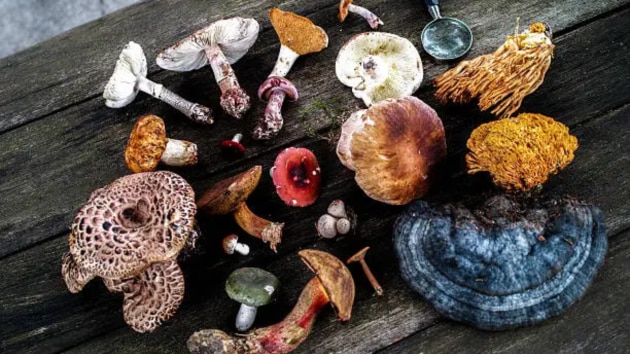What is mushroom coffee?
Here's everything you need to know about the new mushroom coffee, currently a trending drink.
November 4, 2025 14:55 IST 1 / 7
1 / 7A coffee that mixes regular beans with medicinal mushroom extracts has taken the wellness world by storm. “Mushroom Coffee” promises smoother energy, immune support, and less caffeine jitter. But what’s true, what’s hype and what should you be aware of? (AI generated) (Source: Photo by reference from healthline )
 2 / 7
2 / 7What is mushroom Coffee? It’s not a cup of mushrooms. Rather, medicinal mushroom extracts (like lion’s mane, reishi, cordyceps) are blended with coffee beans to create a brew that tastes like coffee but has added functional ingredients. (unsplash) (Source: Photo by reference from healthline )
 3 / 7
3 / 7How It's Made and What's Inside: The mushrooms are dried, extracted (often with dual extraction), powdered, and mixed with coffee grounds. Common types include reishi, chaga, cordyceps, turkey tail. (unsplash) (Source: Photo by reference from healthline )
 4 / 7
4 / 7Less Caffeine than Regular Coffee: Because part of the blend is mushroom powder (which has no caffeine), some brands have about half the caffeine of standard coffee. Example: 50 to 60 mg vs 100 mg per cup. (unsplash) (Source: Photo by reference from healthline )
 5 / 7
5 / 7What Science Actually Says? Medicinal mushrooms do show promise, but not when mixed with coffee in most commercial doses. Human trials are scarce, dosages unclear, and many benefits remain unproven for mushroom coffee specifically. (unsplash) (Source: Photo by reference from healthline )
 6 / 7
6 / 7Promoted Benefits: : Claims include: better focus (lion’s mane), lower stress (adaptogenic mushrooms), gives immune support, Reduced caffeine jitters, is anti inflammatory. (unsplash) (Source: Photo by reference from healthline )
 7 / 7
7 / 7Things to Consider: Allergy or intolerance to mushrooms, Potential interaction with medications (e.g., blood thinners). Cost is significantly higher than regular coffee and labels often don’t list mushroom dose accurately. (unsplash) (Source: Photo by reference from healthline )











